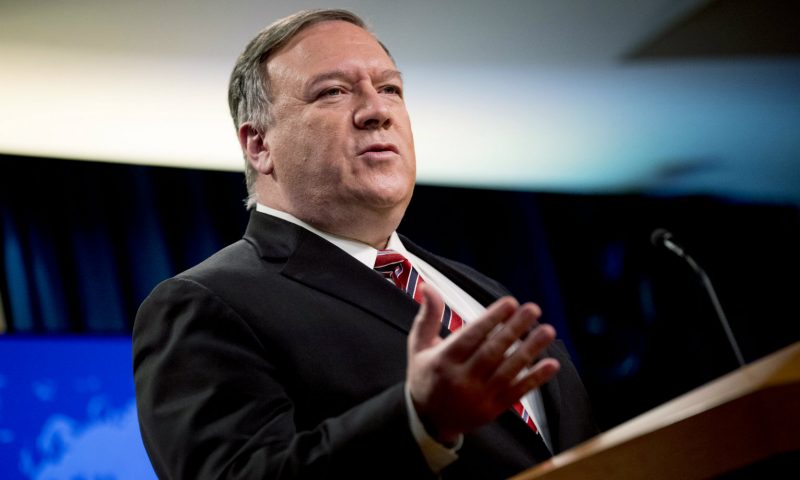The dramatic assessment from the secretary of state initiates a U.S. mechanism for punishing Beijing over its crackdown on pro-democracy protests.
SECRETARY OF STATE MIKE Pompeo told Congress on Wednesday that Hong Kong is no longer autonomous from China, an assessment mandated by U.S. law that the Trump administration says may result in sanctions against Beijing.[
The momentous announcement from the State Department follows China’s planned implementation of new national security laws on Hong Kong, widely seen as a crackdown on pro-democracy demonstrations. In a statement Wednesday, Pompeo blasted the move as “disastrous,” adding it “is only the latest in a series of actions that fundamentally undermine Hong Kong’s autonomy and freedoms and China’s own promises to the Hong Kong people.”
“No reasonable person can assert today that Hong Kong maintains a high degree of autonomy from China, given facts on the ground,” Pompeo said. “This decision gives me no pleasure. But sound policy making requires a recognition of reality. While the United States once hoped that free and prosperous Hong Kong would provide a model for authoritarian China, it is now clear that China is modeling Hong Kong after itself.”
The assessment in reality places President Donald Trump on a collision course with the world’s second-largest economy over the civil rights of the citizens of Hong Kong.
National security adviser Robert O’Brien told NBC’s “Meet the Press” on Sunday that the administration would likely impose economic sanctions on Beijing if it proceeds with new unilateral measures that would strip Hong Kong of its autonomy under the guise of new rules Chinese officials announced last week purportedly designed to crack down on terrorism and insurrection.
“It’s hard to see how Hong Kong could remain the Asian financial center that it’s become if China takes over,” O’Brien said.
China, which relies heavily on the size and access of Hong Kong’s markets, dismissed the threats as “bluffing.”
The Senate last week introduced a bill that, as currently written, would impose sanctions on Chinese banks and those who do business with them – a dramatic escalation from the kind of restraint the U.S. has previously exercised with its principal trading partner, a country that also has increasingly posed a national security threat to American military, diplomatic and economic interests abroad.

